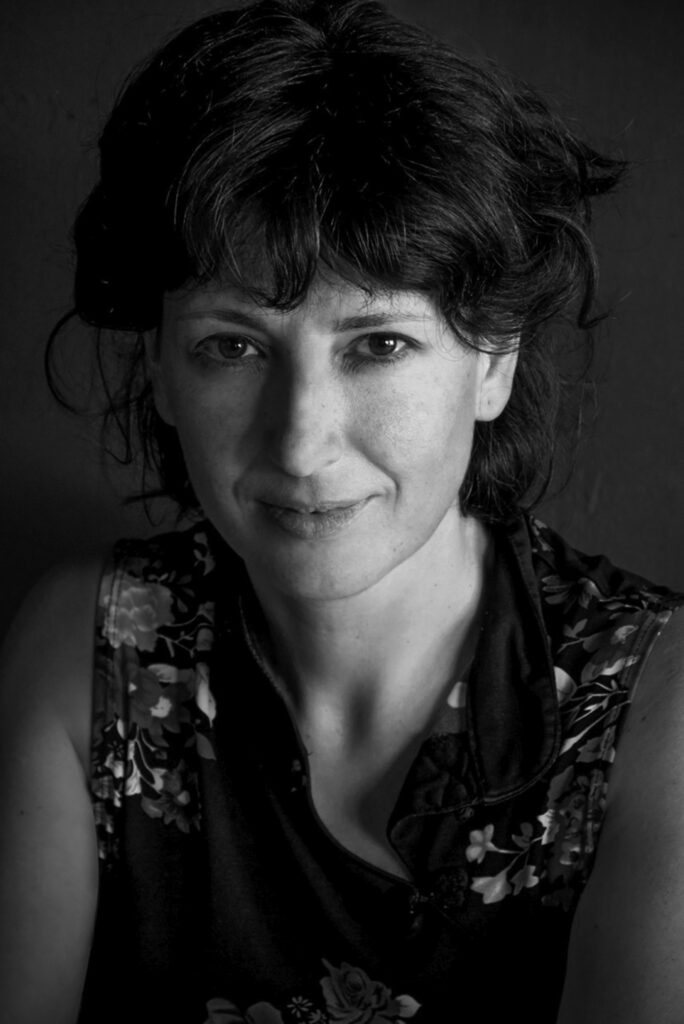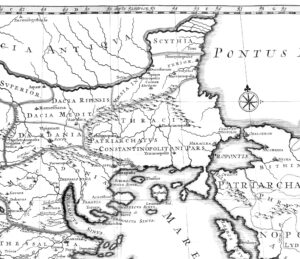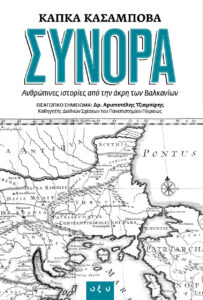"Welcome to the Border" September 24, 2020 – Posted in: Books – Tags: Hellas, history

of Kapka Kasabova, its author BORDER. Human stories from the edge of the Balkans
"Welcome to the border."
The border is how all the prohibitive "fences" that man builds end up in the dustbin of History. Even the ones that feel like they will stay forever, like the iron curtain. Even those who divide neighbors.
However, the strange sense of the border remains. A subtle whisper that says that the future is empty and that there is always something behind you. Perhaps this is the very definition of History.
The rushing and beautiful Rezovo River between Bulgaria and Turkey exerts a special magnetic attraction. So is the empty, bluish Rhodope mountain range between Greece and Bulgaria. The locals never go hiking. They have learned it from bitter experience and they know it deep down: you have no business swimming in the waters of the Styx unless your time is up. You're not going to cross the Rubicon unless you want to make a fuss. Only refugees will be seen crossing the mountain range; their time is up, they have left to escape the hustle and bustle, they give their last coin to the faceless boatman and the lucky ones are reborn on the other side.
Sta borders nothing is what it seems. Instead of a mechanism that simply divides in two, the border becomes a labyrinth, worlds within other worlds. People, plans and ideologies disappear as if falling into a black hole, only to reappear in strange ways and with perfect timing a generation or two later, carrying messages that we must decode if we do not want to become the zombies of History.
In the Balkans borders, more specifically, time is split into symmetric intervals. In genealogical psychology, time split observed when the past invades the present and the traumatic pattern is reenacted. Individuals, families, and entire nations can experience moments of psychological temporal disintegration. Looking at the refugees of the early 21st century crowding the borders, it is impossible not to see the refugees who came to Europe from Asia Minor a hundred years ago – and so many more who took the opposite route, all having lost their worlds. Looking at today's refugees, I see your and my great-grandparents and their unborn descendants already surrounding them: this is us.
This is how the thread of our lives, personal and collective, is folded and unfolded: at the boundaries between the higher and the lower elements. In the gaps of the collective narrative, in the last breath of those of us, on their long road, they laid down to rest under a tree and never rose again, in the moments of farewell on forbidden lines that change the shape of the heart, in ritual passages, in invisible footnotes of those who were the real protagonists while the victors wrote the official texts of history. On the border, as in war – any war – there are no winners. Only hungry ghosts and the strange woman or man in the woods who knows how to feed the ghost and let it rest. That's what I was looking for in this book.
Another lesson of the border: tomorrow you will be the refugee. Yesterday I was the border guard. Today, on the vacated strip of land where the Iron Curtain of my childhood once stood with its alarms and electricity, one sees a brand new gleaming wall. Some call it useful, but those who have seen it know what it is ugly. His purpose is conscious: to stop their course others. But its symbolism is mostly subconscious. Because we we are the others. I quote here the medical definition of denial: "A psychological defense mechanism where the face of a reality is avoided by denying the existence of that reality."
One third of the world's countries are building their own national walls. On that hopeful day in November, thirty years ago, there were sixteen great fortified walls in the world. Today there are sixty-five. These borders are the manifestation of collective denial in the face of accelerating global change. All over the world, we are divided by walls that are doomed to end up in the dustbin of History. But it is of greater importance that we are connected to each other by an invisible bond, as is the case with Earth's ecosystems. And thus connected at the beginning of the millennium, we all stand at an ecological, technological and spiritual threshold. It depends on us which path we will choose and we are all in it together. Change is already happening within us and within our planet. The pandemic of 2020 showed it clearly even to those who did not see it until now. Until it passes, sitting at home behind closed borders, we are faced with questions about love and power. Border questions. Carl Jung, who spent his life investigating the interrelationships of the human psyche and the cosmic anima mundi, wrote: "Where love reigns, there is no need for power; where power reigns, there is no love."
The future is as empty and welcoming as ever, the past lurks with a loaded gun, the border river forms unpredictable ripples and nothing is what it seems. In a place where you don't see him, a faceless boatman is waiting. Ghosts, lumberjacks, watchmen, refugees of impending doom, wild animals hunted by the fires, and the shaman of the forest who roams a border terminal, a beginning that meets the end, like the alchemical uroboric serpent that bites its tail as eternity. It's hard to tell the friendly from the menacing and we have to make a decision before night falls.
Welcome to borders.
Kapka Kasabova


